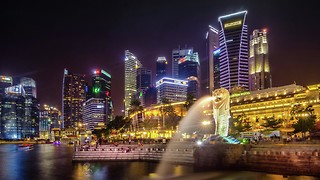The Education of a British-Protected Child
Professor Chinua Achebe is an award- winning novelist, poet, and professor at Brown University, Rhode Island. He will deliver the first Audrey Richards Lecture, which will be held in the Faculty of Law on Friday 19th November. Here, he writes on his British-influenced education.
My father was born in the 1880s, when English missionaries were first arriving among his Igbo people of eastern Nigeria. He was an early convert and a good student, and by 1904 was deemed to have received enough education to be employed as a teacher and evangelist in the Anglican Mission.
The missionaries’ rhetoric of change and newness resonated so deeply with my father that he called his first son Frank Okwuofu (‘New Word’). The world had been tough on my father. He was an orphan child: his mother had died in her second childbirth, and his father, Achebe, a refugee from a bitter civil war in his original hometown, did not long survive his wife. My father therefore was raised not by his parents (neither of whom he remembered) but by his maternal uncle, Udoh.
It was this man, as fate would have it, who received in his compound the first party of missionaries in his town. The story is told of how Udoh, a very generous and tolerant man, it seemed, finally had enough and asked his visitors to move to a public playground on account particularly of their singing, which he considered too doleful for a living man’s compound. But he did not discourage his young nephew from associating with the singers, or listening to their message.
The relationship between my father and his old uncle was instructive to me. There was something deep and mystical about it, judging from the reverence I saw and felt in my father’s voice and demeanour whenever he spoke about his uncle.
One day in his last years he told me of a strange dream he had recently dreamt. His uncle, like a traveller from afar, had broken a long journey for a brief moment with him, to inquire how things were and to admire his nephew’s ‘modern’ house of whitewashed mud walls and corrugated iron roof.
My father was a man of few words, and I have always regretted that I had not asked him more questions. But I realise also that he took pains to tell me what he thought I needed to know. He told me, for instance, in a rather oblique way of his one tentative attempt long ago to convert his uncle. It must have been in my father’s youthful, heady, proselytising days!
His uncle had said no, and pointed to the awesome row of insignia of his three titles. "What shall I do to these?" he had asked my father. It was an awesome question. What do I do to who I am? What do I do to history?
An orphan child born into adversity, heir to commotions, barbarities, rampant upheavals of a continent in disarray: was it at all surprising that he would eagerly welcome the explanation and remedy proffered by diviners and interpreters of a new word?
And his uncle Udoh, a leader in his community; a moral, open-minded man, a prosperous man who had prepared such a great feast when he took the ozo title that his people gave him a unique praise-name for it: was he to throw all that away now because some strangers from afar came and said so?
Those two – my father and his uncle – formulated the dialectic which I inherited. Udoh stood fast in what he knew, but he left room also for his nephew to seek other answers.
The answer my father found in the Christian faith solved many problems, but by no means all. His great gifts to me were his appreciation for education, and his recognition that whether we look at one human family or we look at human society in general, growth can come only incrementally, and every generation must recognize and embrace the task it is peculiarly designed by history and by providence to perform.
From where I stand now, I can see the enormous value of my great-uncle, Udoh Osinyi, and his example of fidelity.
I also salute my father, Isaiah Achebe, for the thirty-five years he served as a Christian evangelist and for all the benefits his work and the work of others like him brought to our people.
I am a prime beneficiary of the education which the missionaries had made a major component of their enterprise. My father had a lot of praise for the missionaries and their message, and so have I. But I have also learned a little more skepticism about them than my father had any need for.
Does it matter, I ask myself, that centuries before these European Christians sailed down to us in ships to deliver the Gospel and save us from darkness, their ancestors, also sailing in ships, had delivered our forefathers to the horrendous transatlantic slave trade and unleashed darkness in our world?
 News / Students form new left-wing society in criticism of CULC3 September 2025
News / Students form new left-wing society in criticism of CULC3 September 2025 News / Cambridge’s tallest building restored to former glory1 September 2025
News / Cambridge’s tallest building restored to former glory1 September 2025 News / Tompkins Table 2025: Trinity widens gap on Christ’s19 August 2025
News / Tompkins Table 2025: Trinity widens gap on Christ’s19 August 2025 News / Student house could become homeless shelter2 September 2025
News / Student house could become homeless shelter2 September 2025 Interviews / GK Barry’s journey from Revs to Reality TV31 August 2025
Interviews / GK Barry’s journey from Revs to Reality TV31 August 2025








